- Photo News: Maha Ramayana Harinama Rama Festival marks 75th anniversary in Maungdaw
- ULA seeks to strengthen public healthcare services in Arakan State
- Junta expands naval presence along Arakan coast to regain lost territory
- Nearly 70 civilians and POW family members killed or injured by junta attacks in Arakan State in one month
- Junta accused of extorting money from detained Muslims in Sittwe
Arakanese farmers struggle to replant drought-ravaged paddy fields
Arakanese farmers say they are facing difficulties replanting paddy fields that have been hard-hit by drought in Arakan state.
14 Aug 2022
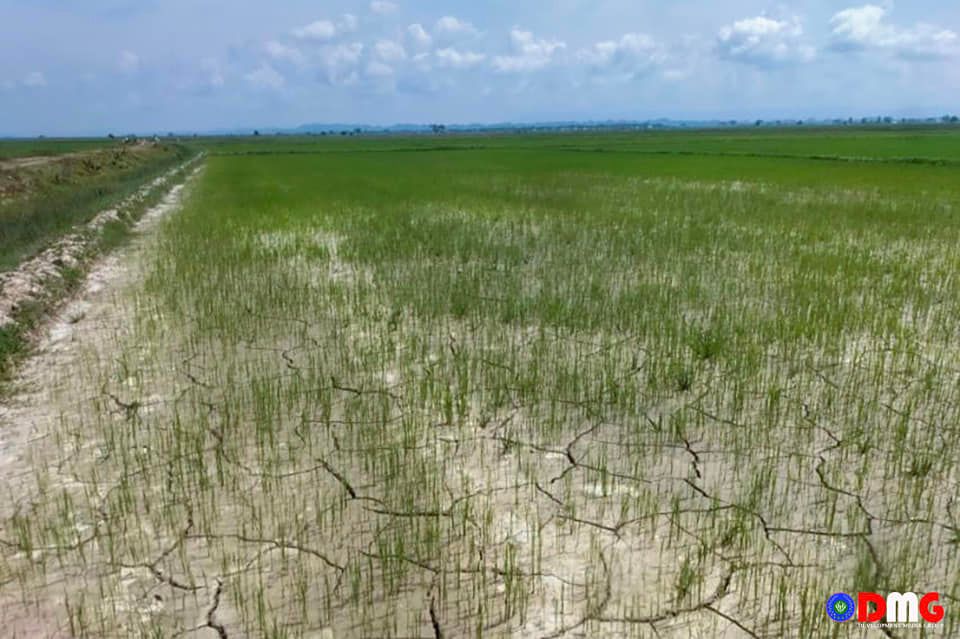
DMG Newsroom
14 August 2022, Sittwe
Arakanese farmers say they are facing difficulties replanting paddy fields that have been hard-hit by drought in Arakan state.
An unusually dry August has resulted in crop losses, and replanting has been a struggle, said U Tun Tun Myint, a local farmer from Shwepyiaye village in Kyauktaw Township.
“We are having difficulty ploughing and replanting paddy fields,” he told DMG.
Farmers said that more than 1,000 acres of farmland in Shwepyiaye village were damaged by drought, and currently they are having difficulty replanting those farms. They are also worried about the weather to come.
U Soe Naing, a farmer from Tinnyo village in Mrauk-U Township, said the farmlands damaged by the drought are being ploughed again, but due to a shortage of paddy seedlings, it is not certain that they will be able to replant 100 percent.
“We are facing scarcity of paddy seedlings. Kaukgyi [a local paddy variety] were planted in the farmlands damaged by the drought. Although we are ploughing the damaged farmlands, we are not sure how to replant the paddy seedlings,” he added.
The drought-related losses come at a particularly high cost this year as the prices of agricultural inputs such as fertiliser and fuel have soared.
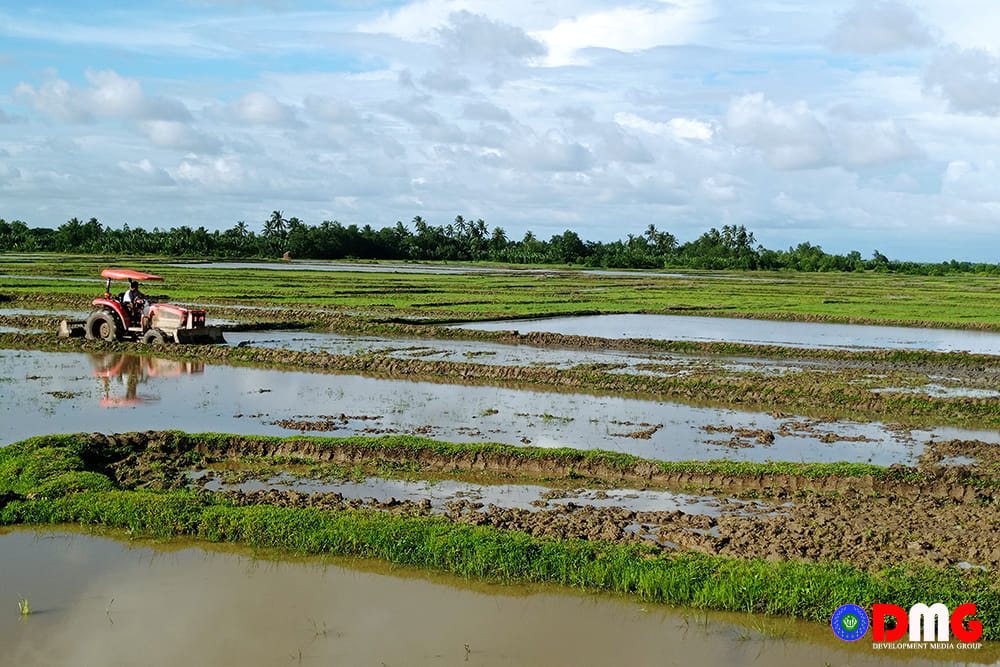
“We have to use water pumps to get water from the creeks to plough and cultivate paddy,” said U Shwe Mya Tun, a farmer from Nayin village in Minbya Township. “Water is very important to us to grow paddy in a timely manner. Some farmlands are abandoned due to inability to get water to them to cultivate paddy.”
The Arakan Farmers’ Union estimates that some 300,000 acres of farmland in townships including Buthidaung, Kyauktaw, Mrauk-U, Minbya, Myebon and Pauktaw were damaged due to the lack of rainfall this year in Arakan State.
“Fertilisers and herbicides need to be used in order for seedlings to survive. We need to use water pumps to irrigate the paddy fields. If the farmers are provided with such support, they can replant the damaged paddy fields,” said U Aung Kyaw Mya, spokesman of the Arakan Farmers’ Union. “But many farmers in Arakan state will not be able to do it because of the high costs.”
When DMG phoned U Hla Thein, spokesperson for the Arakan State military council, to ask about the difficulties faced by farmers, he said that these issues had not yet been reported. He said DMG should contact the Department of Agriculture with the inquiry.
DMG attempted to contact Daw Hla Theingi, deputy director of the Arakan State Department of Agriculture for comment, but she could not be reached.
There are about 1.2 million acres of arable land in Arakan State. Only 1 million acres of farmland could be cultivated this year, however, and about 45 percent of the paddy farmlands may have faced crop losses due to the drought, according to data compiled by the Arakan Farmers’ Union.




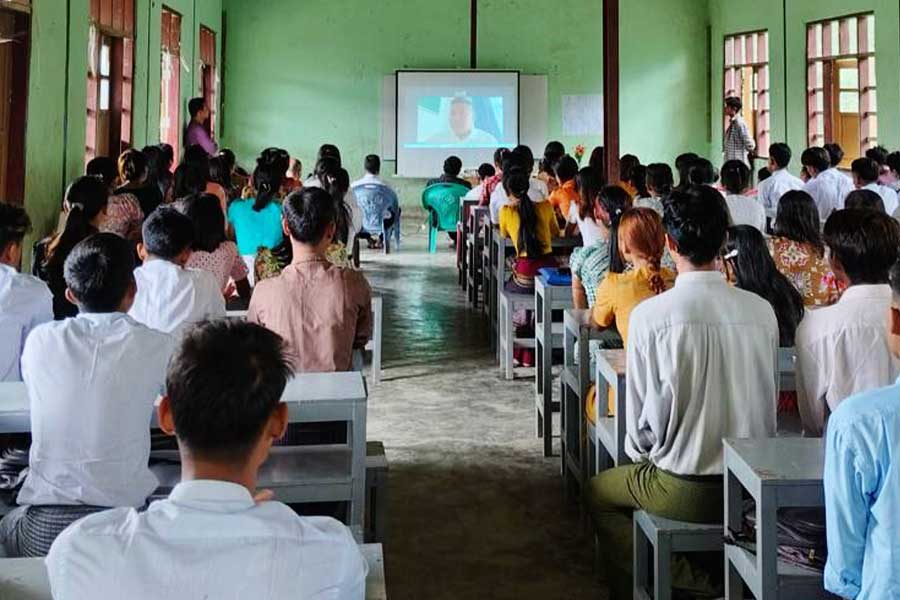


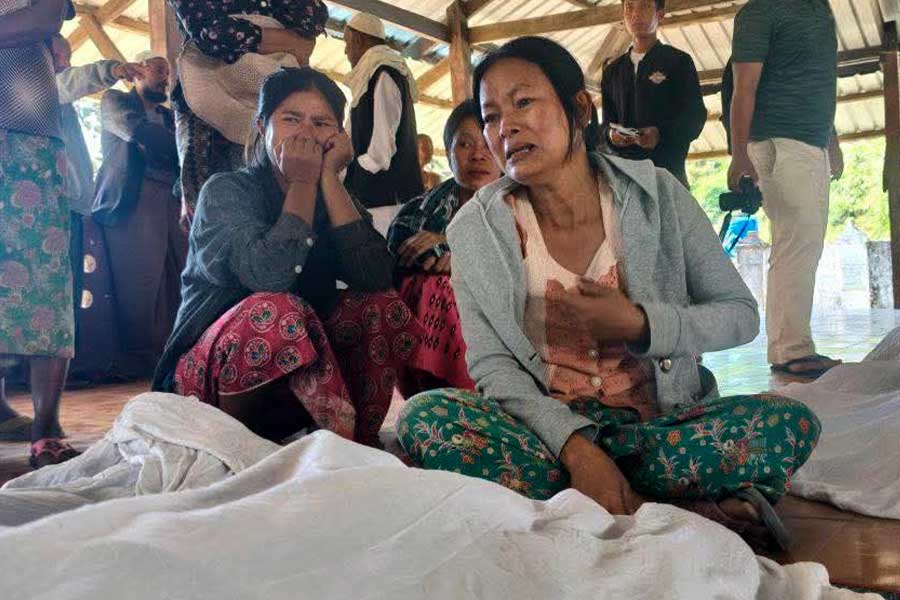
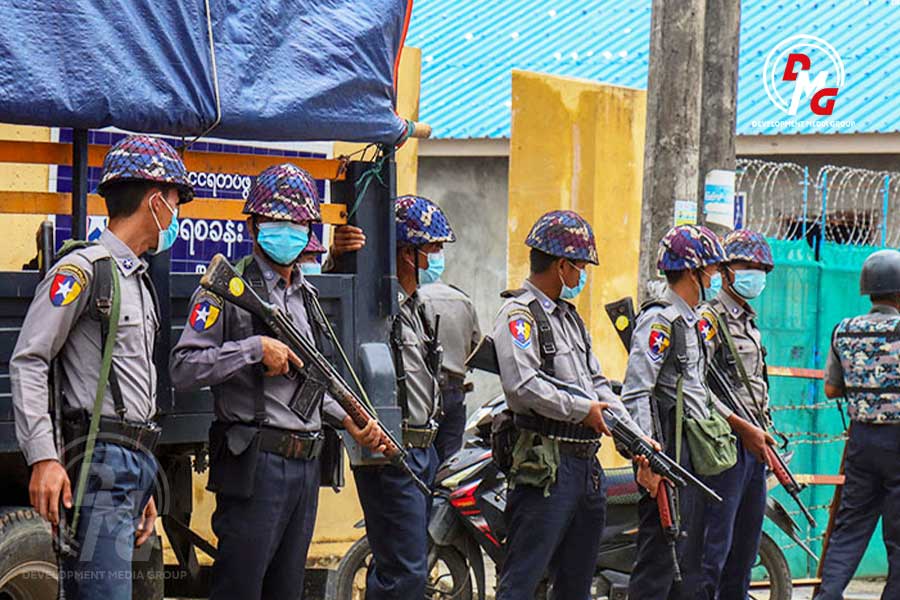






.jpg)

